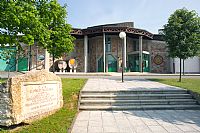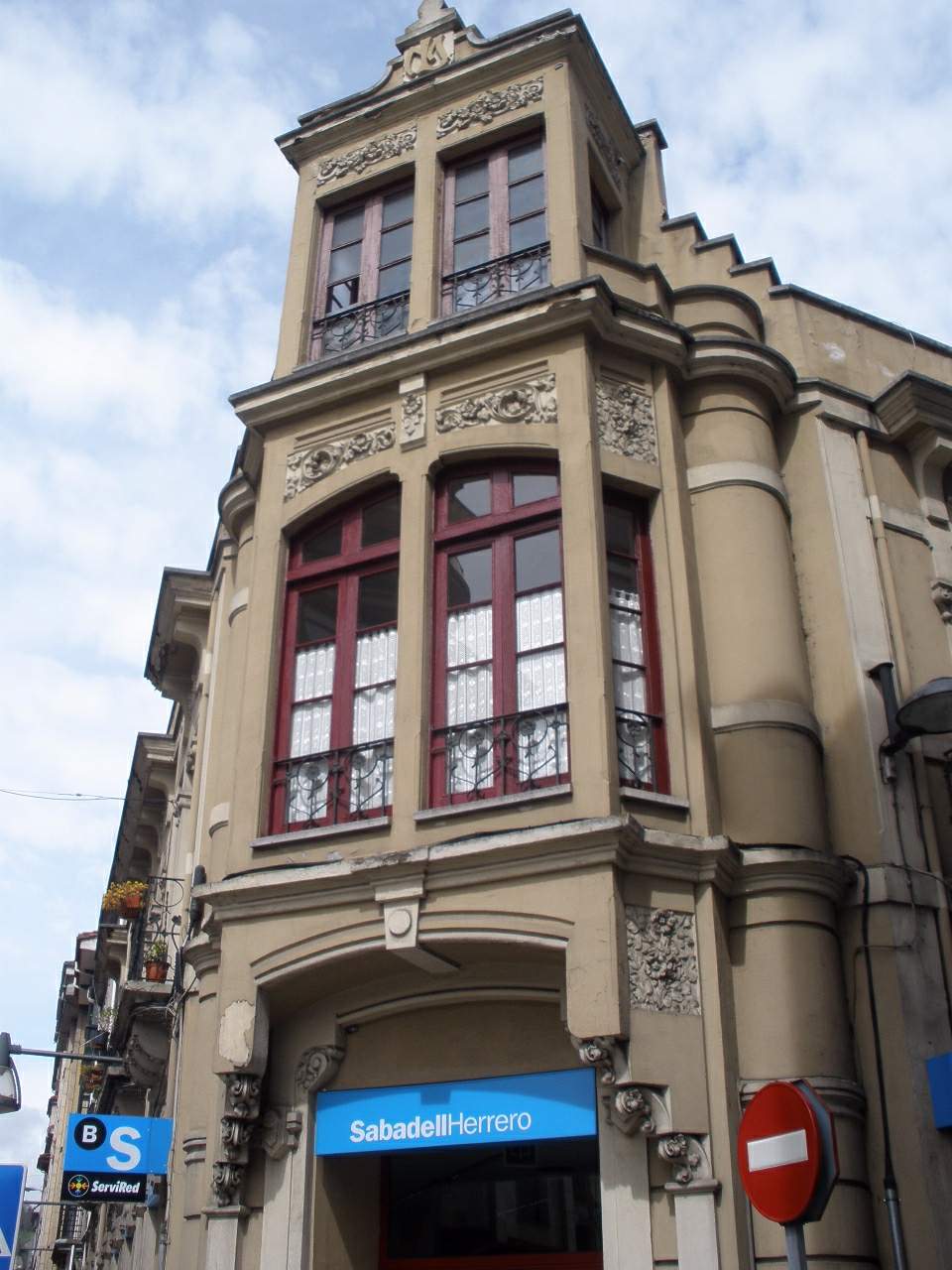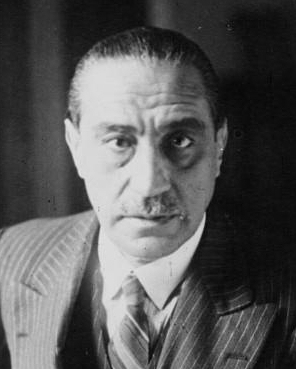|
Bimenes
Bimenes is a municipality of Asturias, Spain. It borders with Siero, Nava, Laviana and San Martín del Rey Aurelio. It is situated in the center zone of Asturias. Its capital is Martimporra. It is 32 km away from Oviedo and its main road is AS-25, that runs parallel to the Pra river. The main towns of Bimenes are Martimporra, San Julian, Rozadas, Suares, Melendreros and Taballes. Bimenes was famous of being a municipality full of miners, even though there were no mines in it, but the surrounding municipalities, Laviana and San Martin del Rey Aurelio did have many of them. Its medium size surrounding mountains and steep roads are considered for sport events like Vuelta a España, Vuelta a Asturias, and the Rally Príncipe de Asturias. Politics The current mayor is Aitor García Corte (Partíu Asturianista Partíu Asturianista (PAS) is a nationalist political party from Asturias, Spain, founded in 1985 by Xuan Xosé Sánchez Vicente. Ideology A social democratic po ... [...More Info...] [...Related Items...] OR: [Wikipedia] [Google] [Baidu] |
Oviedo (Asturian Comarca)
Oviedo is one of 8 ''comarcas'' of the province and autonomous community of Asturias in Spain. The comarca is formed by 21 municipalities (''municipios''). From east to west they are: * Cabranes * Nava *Sariego *Bimenes * Sieru *Noreña *Oviedo * Llanera *Las Regueras *Ribera de Arriba *Morcín *Riosa * Santo Adriano *Grado *Quirós *Teverga *Proaza *Yernes y Tameza *Somiedo *Salas Salas, from Spanish ''salas'' (rooms, halls), is a Spanish surname and a common family name in the Hispanic-speaking world. It is ranked amongst the most common surnames found in Costa Rica and in Mexico. People * Ada Salas (born 1965), Spanis ... * Miranda Comarcas of Asturias {{Asturias-geo-stub ... [...More Info...] [...Related Items...] OR: [Wikipedia] [Google] [Baidu] |
Nava, Asturias
Nava is a municipality in the Autonomous Community of the Principality of Asturias, Spain. It is also the name of one of the parishes in this municipality, as well as the name of the municipal capital. Nava is bordered on the north by Sariego, Villaviciosa and Cabranes, on the south by Laviana and Piloña, on the east by Piloña, and on the west by Bimenes and Siero. The Cider Museum, dedicated to the Asturian national drink, is located in the capital. Parishes A parish is a territorial entity in many Christian denominations, constituting a division within a diocese. A parish is under the pastoral care and clerical jurisdiction of a priest, often termed a parish priest, who might be assisted by one or m ... There are six parishes (administrative divisions): * Ceceda * Cuenya * El Remedio * Nava * Priandi * Tresali Politics References External linksFederación Asturiana de Concejos Municipalities in Asturias * {{Asturias-geo-stub ... [...More Info...] [...Related Items...] OR: [Wikipedia] [Google] [Baidu] |
Laviana
Laviana ( Asturian: ''Llaviana'') is a municipality in the Autonomous Community of the Principality of Asturias, located in Spain. It is bordered on the north by Bimenes and Nava, on the south by Aller, on the east by Piloña and Sobrescobio, and on the west by San Martín del Rey Aurelio and Mieres. Situated in the basin of the Rio Nalon, it is a terminal for the FC de Langreo railway, now subsumed by FEVE, which connects it to the port of Gijón. Economy Mining, agriculture and stock-rearing have been the principal industries since the early 20th century. History Almost everywhere in Asturia you find Prehistorian Signs, also in the region Laviana. Some Hill Forts and Dolmen made in the Bronze Age and in the Iron Age are still visitable (Castro de El Cercu, El Prau in Castiello and La Corona in Boroñes).Also the Romans built some Bridges along the Rio Nalon Street which are used today. The name ''Flaviana'' was written down first time, in 1115 when the area was bordered ... [...More Info...] [...Related Items...] OR: [Wikipedia] [Google] [Baidu] |
United Left (Spain)
United Left ( es, Izquierda Unida , IU) is a federative political movement in Spain that was first organized as a coalition in 1986, bringing together several left-wing political organizations, most notably the Communist Party of Spain. IU was founded as an electoral coalition of seven parties, but the Communist Party of Spain (PCE) is the only remaining integrated member of the IU at the national level. Despite that, IU brings together other regional parties, political organizations, and independents. It currently takes the form of a permanent federation of parties. IU is currently part of the Unidas Podemos coalition and the corresponding parliamentary group in the Congreso de los Diputados. Since January 2020, it participates for the first time in a national coalition government, with one minister. History Following the electoral failure of the PCE in the 1982 (from 10% to 4%), PCE leaders believed that the PCE alone could no longer effectively challenge the electoral he ... [...More Info...] [...Related Items...] OR: [Wikipedia] [Google] [Baidu] |
Communist Party Of Spain
The Communist Party of Spain ( es, Partido Comunista de España; PCE) is a Marxist-Leninist party that, since 1986, has been part of the United Left coalition, which is part of Unidas Podemos. It currently has two of its politicians serving as government ministers in the Spanish government, in the roles of Minister of Labour and Social Economy and Minister of Consumer Affairs respectively. The PCE was founded by 1921, after a split in the Spanish Socialist Workers' Party ( es, Partido Socialista Obrero Español; PSOE). The PCE was founded by those who opposed the social democratic wing of the PSOE, because the social democrat wing did not support the PSOE's integration in the Communist International founded by Vladimir Lenin two years prior. The PCE was a merger of the Spanish Communist Party ( es, Partido Comunista Español) and the Spanish Communist Workers' Party ( es, Partido Comunista Obrero Español). The PCE was first legalized after the proclamation of the Second S ... [...More Info...] [...Related Items...] OR: [Wikipedia] [Google] [Baidu] |
People's Party (Spain)
The People's Party ( es, Partido Popular ; known mostly by its acronym, PP ) is a conservative and Christian-democratic political party in Spain. The People's Party was a 1989 re-foundation of People's Alliance (AP), a party led by former minister of the dictatorship Manuel Fraga and founded back in 1976 as alliance of post-Francoist proto-parties. The new party combined the conservative AP with several small Christian democratic and liberal parties (the party call this fusion of views "the Reformist Centre"). In 2002, Manuel Fraga received the honorary title of "Founding Chairman". The party's youth organization is New Generations of the People's Party of Spain (NNGG). The PP is a member of the centre-right European People's Party (EPP), and in the European Parliament its 16 MEPs sit in the EPP Group. The PP is also a member of the Centrist Democrat International and the International Democrat Union. The PP was also one of the founding organizations of the Budapest-based Ro ... [...More Info...] [...Related Items...] OR: [Wikipedia] [Google] [Baidu] |
People's Alliance (Spain)
The People's Alliance ( es, Alianza Popular, AP) was a post-Francoist electoral coalition, and later a conservative political party in Spain, founded in 1976 as a federation of political associations. Transformed into a party in 1977 and led by Manuel Fraga, it became the main conservative right-wing party in Spain. It was refounded as the People's Party in 1989. History AP was born on 9 October 1976 as a federation of political associations (proto-parties). The seven founders were Manuel Fraga, Laureano López Rodó, Cruz Martínez Esteruelas, Federico Silva Muñoz, Gonzalo Fernández de la Mora, Licinio de la Fuente and . All seven had been officials in the dictatorship of Francisco Franco; the first six had held cabinet-level posts. They became known as ''los siete magníficos'' ("The Magnificent Seven"). Giving up in the project of a "reformist centre" Fraga and his small association Democratic Reform (successor of ) made a turn towards neo-Francoism (the opposite pat ... [...More Info...] [...Related Items...] OR: [Wikipedia] [Google] [Baidu] |
Democratic Coalition (Spain)
Democratic Coalition ( es, Coalición Democrática, CD) was a Spanish electoral coalition formed in December 1978 to contest the general election the following year, after the approval of the Constitution. History In the first weeks, the coalition -after its foundation on 16 December 1978- adopted the names Spanish Democratic Confederation ( es, Confederación Democrática Española) or Progressive Democratic Confederation ( es, Confederación Demócrata Progresista) before changing its name to Democratic Coalition on 9 January 1979. Alfonso Osorio and José María de Areilza had been ministers in the UCD governments, who resigned from them at different times because of disagreements with President Adolfo Suárez. The presidential candidate of the government was Manuel Fraga. It won nine seats in the Congress of Deputies, nearly half of its predecessor, People's Alliance, had obtained in the 1977 elections. Given the dismal results, Fraga resigned as leader of the coalition an ... [...More Info...] [...Related Items...] OR: [Wikipedia] [Google] [Baidu] |
FSA-PSOE
The Asturian Socialist Federation (Spanish: ''Federación Socialista Asturiana''), often shortened to FSA–PSOE, is the regional section of the Spanish Socialist Workers' Party (PSOE) in the Principality of Asturias. It was formed on 27 January 1901 from the Socialist local groupings of Gijón (formed in 1891), Oviedo (1892), Mieres and Langreo (1897) and others. Since the Spanish transition to democracy started in 1975 and since the establishment of the Spanish "State of Autonomies" in 1983, the FSA–PSOE has governed Asturias nearly uninterruptedly from 1983 to 1995, from 1999 to 2011 and again since 2012. History Foundation and early years (1901-1931) After the foundation of the PSOE on 2 May 1879, socialist groups were gradually organised in the main towns and cities of Asturias. Thus, in 1891, the Gijón local group was set up, followed by the Oviedo group in 1892 and those of Mieres and Sama de Langreo in 1897. Between 1899 and 1901, socialism took root in Asturi ... [...More Info...] [...Related Items...] OR: [Wikipedia] [Google] [Baidu] |
Gobierno De España
gl, Goberno de España eu, Espainiako Gobernua , image = , caption = Logo of the Government of Spain , headerstyle = background-color: #efefef , label1 = Role , data1 = Executive power , label2 = Established , data2 = , label3 = Country , data3 = Kingdom of Spain , label4 = Appointed by , data4 = Monarch , label5 = Main organ , data5 = Council of Ministers , label6 = Responsible to , data6 = Cortes Generales , label7 = Constitution instrument , data7 = Government Act of 1997 , header8 = Cabinet , label9 = Members , data9 = Sánchez Government , label10 = Prime Minister , data10 = Pedro Sánchez , label11 = Deputy Prime Minister , data11 = Nadia Calviño , label12 = Number of members , data12 = 23 , header14 = Administration , label15 = Workinglanguage , data15 = Spanish , label16 = Staff organization , da ... [...More Info...] [...Related Items...] OR: [Wikipedia] [Google] [Baidu] |
Ministerio Del Interior
The Ministry of the Interior (MIR) is a Spanish government departments, department of the Government of Spain responsible for public security, the protection of the Constitutional constitutional rights, the command of the Law enforcement in Spain, law enforcement agencies, national security, Immigration to Spain, immigration affairs, List of prisons in Spain, prisons, civil defense and road traffic safety. Through the Undersecretariat of the Interior and its superior body, the Directorate-General for Internal Policy, the Ministry is responsible for all actions related to ensuring Pluralism (political philosophy), political pluralism and the proper functioning of Elections in Spain, electoral processes. The MIR is headed by the Minister for Home Affairs, who is appointed by the Monarchy of Spain, Monarch at request of the Prime Minister of Spain, Prime Minister. The Minister is assisted by three main officials, the Secretary of State for Security, the Secretary-General for Peniten ... [...More Info...] [...Related Items...] OR: [Wikipedia] [Google] [Baidu] |
Partíu Asturianista
Partíu Asturianista (PAS) is a nationalist political party from Asturias, Spain, founded in 1985 by Xuan Xosé Sánchez Vicente. Ideology A social democratic political party, the PAS bases its Asturian nationalist ideology on Asturian history, defining Asturias as an "old European nation" rooted in the Kingdom of Asturias, which has its own culture, traditions and Asturian language. The defense of Asturian language plays a pivotal role in the ideology of the party. History After leaving the Spanish Socialist Workers' Party in 1983, X. X. Sánchez Vicente founded the ''Partíu Asturianista'', which was officially legalised in 1985. Among the primary political targets of the party was a reform of the ''Asturian Statute of Autonomy'', in which Asturias would be recognised as a Historical Nationality, the Asturian language would be granted official status (together with Spanish language), a statute that would guarantee the highest self-government possibilities recognized in the ... [...More Info...] [...Related Items...] OR: [Wikipedia] [Google] [Baidu] |



_Felipe_González_recibe_al_presidente_de_Alianza_Popular_(cropped).jpg)

